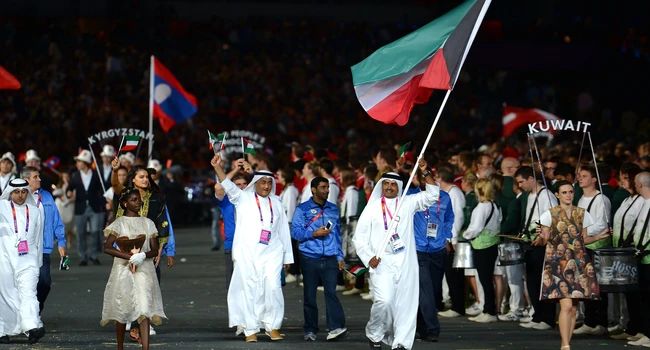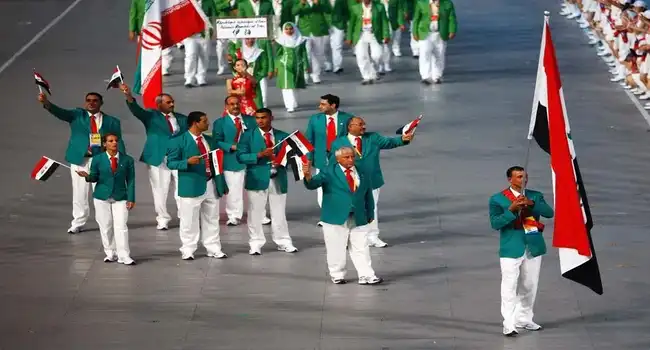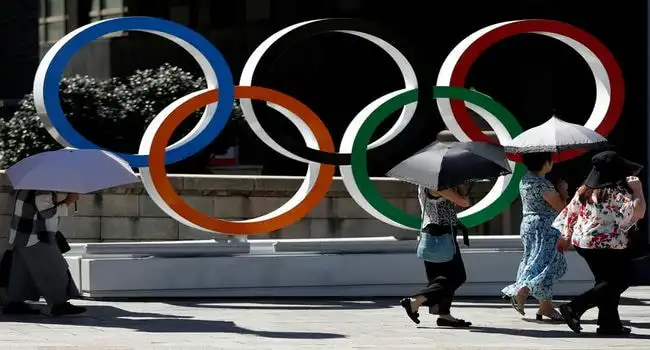The Olympic Games are supposed to be a peaceful gathering of the world’s best athletes, competing for glory in a spirit of friendly competition. But there have been several occasions when certain countries have been banned from participating in the Games, either due to political reasons or for violations of Olympic rules. Here are 10 times countries have been banned from the Olympics:
10- India

The ban on India was a result of the alleged involvement of the Indian Olympic Association Secretary General Lalit Bhanot in the controversies at the 2010 Commonwealth Games. Bhanot’s name had been attached to allegations of corruption, unsafe construction, and a lack of security at the 2010 Commonwealth Games, leading the IOC to take such a strict stance on India’s participation at Sochi 2014.
When the Indian Olympic Association elected a new president, the IOC lifted India’s ban from competing at Sochi 2014 partway through the Games. Thus, India’s flag flew at the closing ceremonies instead of the Olympic flag, which had taken the place of India’s flag at the opening ceremonies. Despite this, only three Indian athletes were permitted to compete as Independent Olympic Participants.
9- Kuwait

Kuwait was barred from the 2012 London Games for its government’s interference in the country’s Olympic committee. It was allowed to compete again in 2016. The IOC cited Kuwait’s lack of autonomy in its decision to ban the country. The IOC found that Kuwait’s government interfered with the National Olympic Committee, thus violating the Olympic Charter. This decision was made after a lengthy investigation and review process. Furthermore, the IOC said it would not recognize any results achieved by Kuwaiti athletes in international competitions. The IOC also stated that Kuwait’s athletes would not be allowed to participate in the Olympic Games for the foreseeable future
8- Iraq

Iraq was prohibited from taking part in Olympic Games by the International Olympic Committee (IOC). The IOC took the decision due to the country’s violation of rules. Iraq had been accused of failing to follow regulations. It was found guilty of breaching regulations concerning the eligibility of athletes. The IOC also accused Iraq of not maintaining a proper system of governance. Additionally, Iraq was accused of failing to provide adequate protection for athletes. Furthermore, Iraq was found to have violated the Olympic Charter. The IOC declared that Iraq would not be allowed to participate in any Olympic Games until it had rectified its violations.
7- Germany

Germany was barred from competing in the Olympics due to the country’s role in World War II. This decision was taken in 1945 by the International Olympic Committee. The IOC’s verdict was based on the fact that Germany had violated the Olympic spirit of fair play. As a consequence, German athletes were excluded from participating in the 1948 London Games. Furthermore, the IOC prohibited any German representative from attending the Olympic ceremony. This ban extended to all future Olympic events. The German Olympic Committee was consequently dissolved, and its members barred from any involvement with the IOC. This ban was only partially lifted in 1951, and Germany was finally allowed to participate in the 1956 Melbourne Olympics. Since then, Germany has consistently taken part in all Olympic events, earning numerous medals in the process.
6- Afghanistan

Afghanistan was banned from Olympics Games in 2000 due to its political issues. The International Olympic Committee (IOC) determined that the country was not in compliance with the Olympic Charter. The IOC cited Afghanistan’s lack of human rights and its suppression of women’s rights as the primary reasons for its decision. Additionally, the country’s warring factions and its unstable political situation were also cited as factors. The ban was a significant blow to the country’s athletes, who had been training for years in anticipation of the Games. Furthermore, it was a stark reminder of how politics can impact sports.
5- Rhodesia

Rhodesia (now Zimbabwe) was banned from Olympic Games due to its controversial policies. Its government’s refusal to abide by the principles of non-discrimination made it difficult to be accepted in the international community. The International Olympic Committee (IOC) officially suspended Rhodesia in 1970 and its athletes were not allowed to compete in the 1972 Olympic Games. This suspension was maintained until Rhodesia achieved majority rule in 1980. The Rhodesian flag, anthem and symbols were also not allowed to be used during the Olympic Games. This ban was seen as a way to put pressure on the Rhodesian government and to promote the principle of non-discrimination. The ban was lifted in 1980 when the government of Rhodesia changed its policies and started to promote racial equality.
4- Yugoslavia

Yugoslavia was barred from competing in the Olympic Games due to its political unrest. A ban was imposed by the International Olympic Committee in 1992, citing the country’s civil war. The Yugoslavia Olympic Committee was dissolved and all athletes were prevented from participating in any Olympic Games. This ban was in effect until 1998, when the IOC determined that Serbia and Montenegro were the successor states to Yugoslavia. From 2000 onward, Serbia, Montenegro and other former Yugoslavian states were allowed to compete as individual nations.
3- Japan

Photo Credit: Nippon
Japan’s Olympic Committee was denied participation in the 1948 Olympic Games due to its role in World War II. The International Olympic Committee barred Japanese athletes from the Games and imposed a ban on the country. This ban lasted until 1952, when Japan was once again allowed to compete in the Olympics. The team faced major obstacles in order to compete and had to work hard to gain the trust of the international community. This included rebuilding its reputation in the sporting world and making sure its athletes were of a high caliber. Japan was eventually able to demonstrate its commitment to fair play and sportsmanship, which was enough to have the ban lifted. The country then went on to become a major player in the Olympic Games and has won numerous medals and titles since.
2- South Africa

Photo Credit: Olympics
The International Olympic Committee (IOC) banned South Africa from the Olympic Games in 1960 due to the country’s apartheid policy. This ban remained in effect until the country’s democratic elections in 1994. During the ban, South African athletes were not allowed to compete in or attend Olympic events, and any countries that did compete against South Africa would be suspended from the IOC. The decision to ban South Africa was a powerful statement against the racist policies of the country and sent a strong message to the world about the importance of human rights. Despite the ban, a number of South African athletes continued to compete in international events, often facing severe punishments for their actions. In the end, the ban was lifted and South Africa was welcomed back into the Olympic family.
1- Russia

Russia was barred from competing at the 2016 Olympic Games due to its systematic manipulation of the anti-doping system. The International Olympic Committee (IOC) took the unprecedented decision to exclude the country from the Games. This was the first time in Olympic history that a nation had been banned for doping offences. The IOC also ruled that Russian athletes could not compete under the Russian flag and could not wear Russian colours or symbols. The Russian Olympic Committee was also banned from Olympics for hosting or bidding for future events. The IOC’s decision was based on the findings of the World Anti-Doping Agency, which uncovered evidence of widespread doping among Russian athletes. This evidence included the manipulation of urine samples, a lack of effective anti-doping systems, and the use of a state-sponsored doping program.


